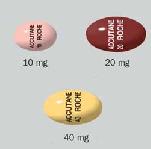
Accutane has successfully treated severe acne in many patients, but it has been controversial ever since the drug emerged on the market. Food and Drug Administration (“FDA”) approved in May 1982, Public Citizen consumer group petitioned the drug agency to take immediate action to warn patients and physicians about the serious adverse effects associated with the use of the acne medication in September 1983.
The drug has continued to be controversial. In 1998, a highly publicized FDA advisory committee meeting was held to discuss the high level of Accutane exposure in pregnant women. As a result, the Pregnancy Prevention Program (PPP) emerged to more efficiently manage the Accutane birth defects risks, but even with several advisory committee meetings to monitor the program’s progress, the majority of women taking Accutane were not participating in the program. Even the women who participated in the program had infrequent pregnancy testing and Accutane pregnancy exposures continued to occur at a high level.
Not until September 2000 did an advisory committee meeting on Accutane pregnancy exposure and the performance of PPP convene, which showed enrollment was low and falling, and pregnancy testing was still not being performed and recommendations about contraception or abstinence were often left out. In addition to the failing Accutane pregnancy program, the use of the drug in women had increased three-fold in the preceding 10 year period.
A new program was introduced, called SMART, in response to the failure of PPP, adding “yellow stickers” to existing PPP, though it had no method of determining if pregnancy testing was being performed. In February 2004, nearly four years after SMART was introduced, Public Citizen presented testimony before an FDA advisory committee on Accutane saying Accutane should be removed from the market and prescribed only under very limited and controlled conditions because of the birth defects and life-threatening adverse events the drug caused.
In addition to the severe birth defects Accutane can cause, recent reports have blamed the drug for causing depression. A handful of parents in the United States have blamed Accutane for depression in their children, and in some cases, resulting in suicide. Although a study published in an issue of The Archives of Dermatology found no link between Accutane and depression, lawsuits have been filed against the drug’s manufacturer, alleging the drug increases the risk of suicide and gastrointestinal disease.
A Centers for Disease Control and Prevention report in 2003 found that 20 percent of girls and 13.4 percent of boys share medications with friends, including Accutane. Because of the drug’s serious known and disputed risks, this practice is also very concerning. Doctors, parents and patients must be educated about the significant effects of Accutane, and the drug should only intended as a last resort treatment for severe acne.
For more information on Accutane side effects, please contact us to confer with an attorney.
